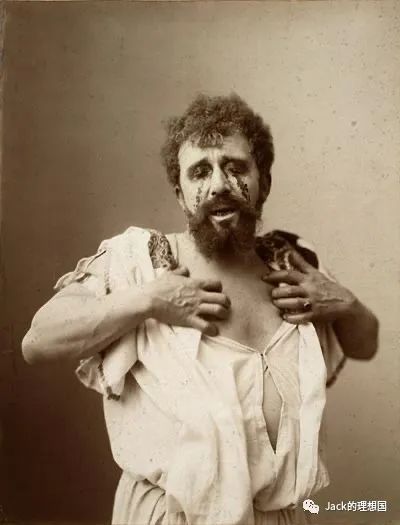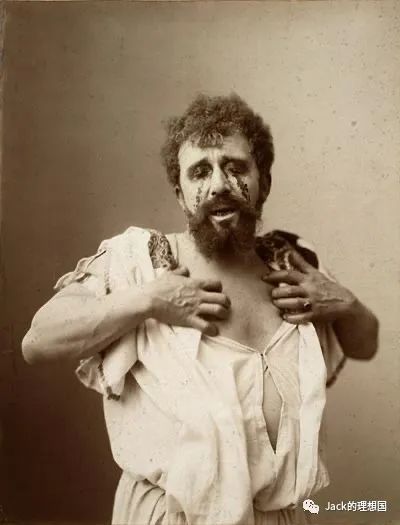Fate 命运
Part 1: Introduction
Throughout the history of literature, plays, especially tragedies, have always been capable of evoking strong emotions within the audience and conveying philosophical themes in profound and impactful ways. Shakespeare's great tragedy Macbeth tells the story of the heart-clinching transformation of Macbeth from a noble, great warrior into a self-conflicting, ruthless tyrant that eventually creates his downfall. While ancient Greek playwright Sophocles' classic tragedy Oedipus Rex narrates the tragic myth of King Oedipus, of how he discovers that he has killed his father and married his mother, and how all these are parts of his fate, decided upon by the Oracle of Delphi. In both tragedies, one common philosophical topic or motif is fate, which is critical to investigate because fate is one of the key driving forces of character development and plot in both plays. By using the devices or crafts of simile, metaphor, personification, hyperbole, and symbols, both plays emphasize and discuss three further threads related to fate: what decides fate? What is its most essential characteristic? In front of fate, how foul or noble can a person live to be?
Part 2: The Theme

One famous line from Macbeth that reflects the theme of fate is, "Blood will have blood" (Act 3, Scene 4, Line 122). Here, the symbol of blood represents murder, horror, and foulness. Blood, conspiracy, and death are in almost every act and scene throughout the play. Shakespeare uses this recurring symbol to imply that Macbeth stains his conscience and fate. It has become a guilty and heavy burden in Macbeth's heart. He realizes that the bloody crimes he has committed will only be repaid with more blood and that he has doomed his disastrous fate to fall into darkness.

(Oedipus Rex and the Sphinx)
Similarly, one line from Oedipus Rex that reflects the theme of fate is selected from one of the final chants of The Chorus, when Oedipus is about to unveil the tragic truth himself, "Destiny guide me always Destiny find me filled with reverence pure in word and deed Great laws tower above us, reared on high, born for the brilliant vault of heaven—" In this chant, Sophocles mainly utilized the device of personification to show that fate and the "Great Laws" of heaven will always triumph. A prideful mortal man, like Oedipus, cannot escape the plans of fate.
Part 3: What Decides "Fate"?
The first significant thread that both plays aim to discuss is what decides fate.

(Stage Photo: Macbeth and Lady Macbeth, portrayed by Sir Ian McKellen and Judi Dench)
In Macbeth, the prophecies of the witches at the start, plus a plethora of supernatural elements that appear in the play: abnormal darkness, blood, ghosts, omens, and sleepwalking, seem to imply that the real cause of all the tragedy is the prearranged and heavenly fate. However, is it so? In Act 1 Scene 5, Lines 14-16, Lady Macbeth chides Macbeth for his indecisiveness in killing Duncan. She claims, "Glamis thou art, and Cawdor; and shalt be / What thou art promised. Yet do I fear thy nature; / It is too full o' th' milk of human kindness…" Here, including the metaphor of the "milk of human kindness" and the words "thy nature" help a reader comprehend the attitude of Shakespeare toward fate. The witches' prophecies are, by nature, the internal desires of Macbeth. Macbeth's avaricious, dark "nature" would push him to murder Duncan and take the throne. Ultimately, what decides one's fate is not some deity or supernatural being; it is one's personality and fragile human nature.

Quite differently, Sophocles argued the opposite way. Oedipus Rex is a tragedy that fate creates because fate takes the predominant position and is the most decisive force that pushes the plot forward. One segment of the Chorus lines corroborates this point, "For other, once the gods have rocked a house to its foundations, the ruin will never cease, cresting on and on from one generation on through the race—like a great mounting tide driven on by savage gales . . ." Here, Sophocles utilized a simile and the words "the gods" to show that it is the all-powerful gods that decide on a mortal's fate for generations. The allusion to a house being destroyed to its foundations additionally conveys Sophocles' awe and belief in the power of gods in creating the fate of men. The inescapable fate that Oedipus should kill his father and marry his mother is created by the Oracle of Delphi; a mortal man cannot alter it.
Part 4: What Is Fate's Most Important Characteristic?
Another related question concerns how both works depict the essential characteristic of fate in various ways. Both Shakespeare and Sophocles agreed that fate is, above all, fickle for mortals. In Macbeth, the fickle characteristic of fate is portrayed in Act 1, Scene 2, Lines 14-15, when a captain tells the story of Macdonwald being defeated by Macbeth, "fortune, on [Macdonwald's] damned quarrel smiling, / Show'd like a rebel's whore." These lines, employing simile at "like a rebel's whore", allude to a view of Shakespeare's that fortune, or fate in general, is faithful to none and wholly unpredictable. In Oedipus Rex, after finding out the horrible truth, Oedipus cannot escape the wrath and devastation brought by the very fate that gives him all the honors of being king. The chorus exclaims, "see [Oedipus] now and see the breakers of misfortune swallow him! Look upon that last day always. Count no mortal happy till he has passed the final limit of his life secure from pain." Here, Sophocles applied the devices of personification and hyperbole, at "misfortune swallow him", to impactfully deliver to the audience that fate can instantaneously take away happiness and glory from an individual without the possibility of intervention or prediction. It is not a constant force - fate is fickle and dangerous.
Part 5: In front of fate, how foul or noble can a person live to be?
Fate, as demonstrated in both plays, is powerful and fickle. Under this context, both playwrights respectively attempt to convey their spiritual teachings, discussing the question of how foul or noble a person can live to be in front of their fate.

In Macbeth, in front of his self-chosen fate, Macbeth cannot redeem himself, continuously falling deeper into the path of self-destruction. Throughout the play, he does question some of his behaviors, but none of this weak questioning is enough to push him back onto the right path, as deep inside his heart, he cannot get rid of the avarice for more power. With each murder, Macbeth's life degenerates into a fouler, more torturous state. In Act 2 Scene 2, Lines 40-41, after killing Duncan, Macbeth tragically declares, "Glamis hath murdered sleep, and therefore Cawdor / Shall sleep no more. Macbeth shall sleep no more." The symbolism of sleep here is noteworthy. Sleep symbolizes a tranquil, easy state of mind, unbounded by any moral burdens. Thus, when Macbeth murders Duncan, he "murder[s] sleep," murders his life's tranquility and peace, and will be bound to suffer from "sleepless nights" of fear and agony. This quote shows that he chooses his own fate, which would only slide into the more bottomless abyss.

On the contrary, Oedipus Rex reveals how noble one's free will can be in front of the omnipotent fate. Oedipus evades the truth that he has murdered his father and married his mother until the last moment. Being inspired by the prophet Tiresias and experiencing mental growth, Oedipus finally looks at his unfortunate fate in the eye, solemnly exclaiming, "Now, O Light, may I look on you for the last time! I, Oedipus, Oedipus, damned in his birth, in his marriage damned, Damned in the blood he shed with his own hand!" Using the golden hairpin of Jocasta, he stabs out his eyes blind and asks his companion Kreon to exile him forever. Although Oedipus is destroyed by fate, he turns into a true and noble philosopher. The symbolism of the eyes is subtle. Oedipus' physical eyes are forever closed, but his spiritual eye, the eye that can see through truth and settle harmoniously with fate, is opened. Oedipus finishes the metamorphosis from a tyrant to a philosopher.
Part 6: Conclusion
Tragedy plays always employ the break-down of good things to evoke an inner examination and reflection of oneself. Under the pen of Shakespeare, Macbeth is undoubtedly a negative character who is betrayed by his self-chosen fate, and Oedipus, under the pen of Sophocles, is a failed loser fooled by his fate. Both plays adequately demonstrate the fickleness of fate and the decisions a mortal makes in front of it. I believe what both playwrights endeavor to evoke in the audience is not some disgust towards their characters, but rather a profusion of empathy and resonance that echoes across space and time.
PICTURES CITED
https://www.aresearchguide.com/macbeth-modern-look.html
https://www.ancient-literature.com/greece_sophocles_oedipus_king.html
https://www.hollywoodreporter.com/news/general-news/throwback-thursday-ian-mckellen-was-707810/
https://www.pinterest.com/pin/ancient-greek--811985007803333220/
第一部分:简介
纵观文学史,戏剧,尤其是悲剧,总能唤起观众的强烈情感,并以深刻而有影响力的方式传达哲学主题。莎士比亚的伟大悲剧《麦克白》讲述了麦克白从一个拥有“高贵而伟大的灵魂”的战士转变为一个内心充满矛盾冲突的嗜血暴君,最终使自己堕入深渊的故事。而古希腊剧作家索福克勒斯的经典悲剧《俄狄浦斯王》则讲述了俄狄浦斯王在德尔斐神谕所设定的既定命运中杀父娶母的悲惨故事。在这两部悲剧中,存在一个共同的哲学话题即“命运”,命运是这两部剧中人物和情节发展的关键驱动力之一。剧作家们通过使用比喻、隐喻、拟人、夸张和意象、象征等手法,深入讨论了与命运有关的主题:什么决定了 "命运"? 它最本质的特征是什么?在命运面前,一个人可以活得多么卑鄙或多么高尚?
第二部分:文眼

《麦克白》中反映命运主题的一句名言是:"血债血偿"(第三幕,第四场,第122行)。在这里,血的意象代表着谋杀、恐怖和污秽。纵观全剧,每一幕、每一场戏都充斥着鲜血、阴谋和死亡。 莎士比亚用这个反复出现的符号暗示麦克白玷污了自己的良心,这已经成为麦克白心中的一个罪恶而沉重的负担。他意识到,他所犯下的血腥罪行只能用更多的鲜血来偿还,他注定了自己的悲剧命运。

同样,《俄狄浦斯王》中反映命运主题的一句话选自歌队最后的一段唱词,当时俄狄浦斯即将亲自揭开悲剧的真相。"命运永远指引我 ,命运发现我的言行,为了规定这些言行,天神制定了许多最高的律条,它们出生在高天上… "在这段唱词中,索福克勒斯运用了拟人的手法,说明命运和天堂的 "大法 "永远会胜利,一个普通的凡人无法逃脱命运的摆布。
第三部分:什么决定了 "命运"?
两部戏剧旨在讨论关于命运的第一个主题,即什么决定命运?

在《麦克白》中,开头时女巫的“预言”,再加之贯穿整部剧作的灵异元素:黑暗、鲜血、鸟鸣、鬼魂、凶兆、梦游等意象,这些超自然的力量似乎暗示着一切悲剧的真凶是命运,但真的是这样吗?莎士比亚在第一幕第五场第14-16行,麦克白夫人责备麦克白在杀死邓肯的问题上优柔寡断,麦克白夫人声称:"你本是葛莱密斯爵士,现在又做了考特爵士,将来还会达到预言所述的高位。可是我却为你的天性忧虑,它充满太多人性善良的乳汁" 在这里,包括 “天性”、"人性善良的乳汁 "等隐喻有助于读者更好地理解莎士比亚对待命运的真实态度,即女巫的预言在本质上是麦克白内心的真实欲望,麦克白贪婪、黑暗的 "天性 "促使他谋杀了邓肯并获得王位,最终决定命运的不是什么神灵或超自然的力量,而是一个人的性格和人性的弱点。

索福克勒斯的论点恰恰相反,《俄狄浦斯王》之所以被称为是一部由命运造就的悲剧,归根结底是因为命运在其中占据着绝对的地位,是推动情节发展的决定力量。歌队的一段台词正体现了这一观点:“一旦神明决定把房子摇倒在地基上,废墟就永远会存在,从一代人到另一代人,就像被野蛮的大风推动的巨大的潮水一样,不断地涌现……" 在这里,索福克勒斯利用一个比喻来表明,是全能的神决定了一个凡人世世代代的命运。房屋被摧毁的典故还传达了索福克勒斯对神明创造人的命运的力量的敬畏和信仰。俄狄浦斯王杀父娶母的不可逃避的命运是由德尔菲神谕创造的,是凡人所不可抗拒的。
第四部分:命运最重要的特征是什么?
另一个相关的问题是,两部作品都以不同的方式描绘了命运最重要的特征。莎士比亚和索福克勒斯都认为,对于凡人来说,命运首先是无常的。在《麦克白》中,第一幕第二场第14-15行描写了命运无常的特点,当一位船长讲述麦克唐瓦尔德被麦克白打败的故事时,"命运向他该死的野心卖笑,色诱着他如妓女。"这一处使用了比喻,暗指莎士比亚表达的一种观点,即财富或命运对任何人都是公平的,它是完全不可预测的。《俄狄浦斯王》中,在发现了可怕的真相之后,俄狄浦斯无法逃脱作为国王所有荣誉被命运毁灭的结局。歌队感叹道:"请看,这就是俄狄浦斯,他道破了那著名的谜语,成为最伟大的人:哪一位公民不曾带着羡慕的眼光注视他的好运?可看,他现在却落到可怕的灾难的波浪中了,不幸吞噬了他!”在这里,索福克勒斯运用了拟人和夸张的手法,在 "不幸吞噬了他 "这句话中,向观众传递了这样一个信息:命运可以在瞬间从一个人身上夺走幸福和荣耀,而没有干预或预测的可能。它不是一种恒定的力量--命运是无常的、危险的。
第五部分:在命运面前,一个人可以活得多么卑鄙或多么高尚?
命运,正如两部剧中所展示的那样,是强大而无常的。在这种情况下,两位剧作家分别试图传达他们的精神教诲。

在《麦克白》中,在自己选择的命运面前,麦克白无法实现自我救赎,不断在自我毁灭的道路上越陷越深。在整部剧中,他确实对自己的行为存在一定的动摇,但这种软弱的动摇不足以把他推回正确的道路上,因为在他的内心深处,他无法摆脱对更多权力的贪婪。随着每一次谋杀,麦克白的生活就会堕落到一个更污秽、更折磨人的状态。在第二幕第二场第40-41行,在杀死邓肯后,麦克白悲惨地宣称:"葛莱密斯爵士谋杀了睡眠,因此考特爵士将不再睡觉。麦克白将不再睡觉"。这里的睡眠的意象或象征意义是值得注意的。睡眠象征着一种宁静、轻松的心境,不受任何道德负担的约束。因此,当麦克白谋杀了邓肯,他就 "谋杀了睡眠 ",他谋杀了他的生活的宁静、平和,并将注定要遭受 "无眠之夜 "的恐惧和痛苦。这句话表明,麦克白主动选择了自己的命运,一个滑向深渊的命运。

与《麦克白》相反,《俄狄浦斯王》向我们展示了在强大的命运面前,与命运抗争的人类的自由意志可以多么高贵。俄狄浦斯王始终逃避自己杀父娶母的事实,直到最后一幕,在先知的启蒙下,经历了心灵重大成长的俄狄浦斯王庄严地感叹道:"现在,光啊,让我再看你最后一眼!…我,俄狄浦斯,俄狄浦斯,在他的出生中被诅咒,在他的婚姻中被诅咒,在他亲手流的血中被诅咒!" 最终,他用母亲伊俄卡斯特的金簪刺瞎了自己的眼睛,并要求他的同伴克瑞昂永远放逐他。在这里,眼睛的象征意义是微妙的。俄狄浦斯的肉体之眼永远关闭了,但他的精神之眼,即能看透真理并与命运和谐相处的眼睛却被打开了。俄狄浦斯也完成了由一位“僭主”向“哲人”的转变。
第六部分:结论
悲剧总是以美好事物破裂的方式唤醒人们对自我内心的审视和反思。莎士比亚笔下弑君夺位并最终被命运抛弃的麦克白无遗是个负面人物,俄狄浦斯王也是一个被命运摆布的失败者,这两部剧都充分展示了命运的无常和一个凡人在命运面前的选择。剧作家们把这些负面人物和失败者刻画得让人无限唏嘘,他们在观众中唤起的不是对角色的厌恶,而是无限的同情和跨越时空的共鸣。
- 本文标签: 原创
- 本文链接: http://www.jack-utopia.cn//article/403
- 版权声明: 本文由Jack原创发布,转载请遵循《署名-非商业性使用-相同方式共享 4.0 国际 (CC BY-NC-SA 4.0)》许可协议授权










